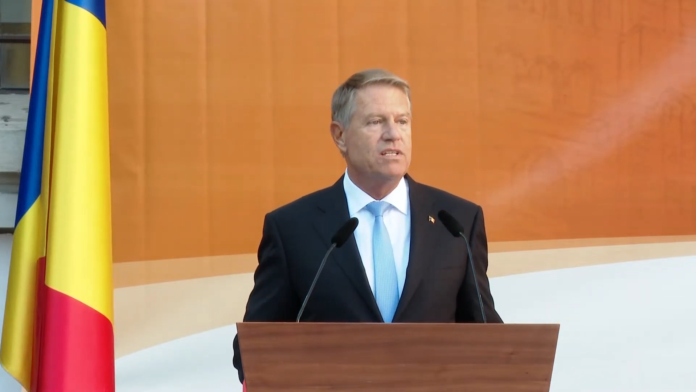President Klaus Iohannis attended the EU-Gulf Cooperation Council (GCC) Summit, on Wednesday, during which he emphasized that Romania is interested in better connectivity between the two regions.
„President of Romania, Klaus Iohannis emphasized the importance of the EU-Gulf Cooperation Council strategic partnership at present, as well as the potential of multi-sectoral economic cooperation. He called for updating and extending the contractual framework in the field of trade and investment, while also supporting progress on visa liberalization. Romania is interested in better connectivity between the two regions, through the development and expansion of projects, such as the India-Middle East-Europe Economic Corridor (IMEC) and under the aegis of the Global Gateway, which would allow for more efficient and partnership-based use of new technologies, energy sources and critical materials. Referring to the interdependencies between the two regions, including in terms of security, the Romanian President emphasized the security threats to our country resulting from Russia’s aggression against Ukraine, as well as the importance of fully implementing sanctions against Russia,” the Presidential Administration said in a press release sent on Thursday.
According to the cited source, this first edition of the Summit was a defining moment for the advancement of the Strategic Partnership between the two regions and laid the foundations for deepened cooperation in the coming period. On this occasion, the leaders adopted a Joint Declaration, which affirms in binding terms the interest in strengthening bilateral political ties, taking them to a higher level and the need to overcome together the regional challenges to international peace, security and stability, based on international law and the principles of the UN Charter.
The EU-Gulf Cooperation Council joint partnership is aimed at the security, sustainable development and prosperity of the two regions, by boosting bilateral trade and investment, energy cooperation and combating climate change, increased connectivity, including in the digital and interpersonal exchanges fields.
According to the cited source, „The Summit provided an opportunity for an in-depth dialogue on the current security challenges both in the Middle East region and Russia’s war of aggression against Ukraine, which are of concern to European and Gulf leaders alike”.
With regard to Russia’s aggression against Ukraine, the adopted Declaration recalls the need to respect the sovereignty and territorial integrity of Ukraine, the need for immediate, complete and unconditional withdrawal of Russian military forces from its internationally recognized territory. At the same time, the attacks on civilians as well as on civilian and critical infrastructure, in particular energy infrastructure, are condemned, and the need for a comprehensive, just and lasting peace in line with the principles of the UN Charter is emphasized.
Summit leaders also expressed growing concern about developments in the Middle East, calling on all parties to contain and de-escalate the situation. In particular, the situation in Gaza was emphasized, calling for an immediate and full implementation of ceasefire, the release of all hostages and humanitarian access for the distribution of support to the civilian population. At the same time, concern was expressed about the danger of an escalation of the conflict in Lebanon, calling for a ceasefire and the implementation of UN Security Council Resolution 1701. Iran’s conduct in the field of ballistic missile and drone proliferation impacting the security of both regions was discussed. Joint messages were also agreed on the situation in the Red Sea, Yemen, Iraq, Syria, Sudan and Somalia.
On Thursday and Friday, President Klaus Iohannis will attend the European Council meeting. The meeting agenda includes topics such as Ukraine, the situation in the Middle East, EU competitiveness, migration, foreign affairs and the Republic of Moldova.
AGERPRES




